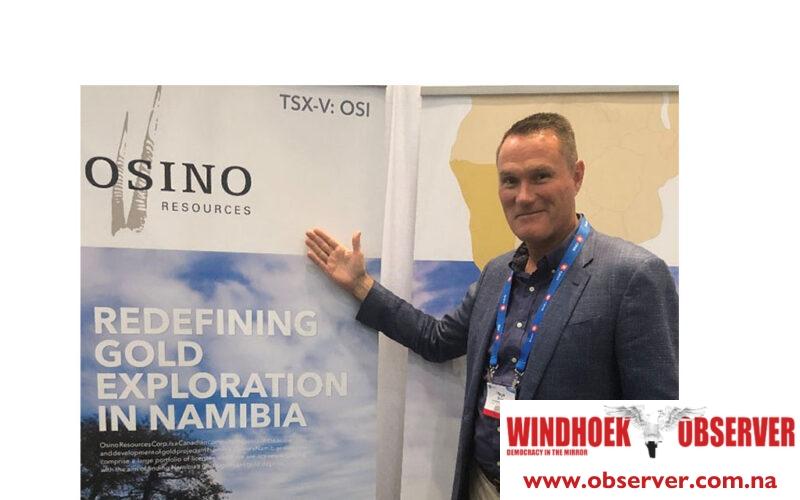Martin Endjala
Osino Resources, a British-owned company, has invested a total of N$634 million in its Twin Hills Gold Mine project near Karibib since its inception in 2017.
This foreign direct investment has contributed significantly to the economy and has resulted in the creation of roughly 1,000 jobs.
This information comes from the mining company’s recent announcement of its Sustainable Report for the 2022 financial year.
According to the report, the company’s procurement spending amounted to N$124 million, with N$27 million paid in wages and N$3 million paid to the government for social security, PAYE, workman’s compensation, and training levy.
The report also highlighted that 79 percent of local procurement was spent within Namibia, demonstrating the company’s ongoing support for local suppliers.
Notably, 26 percent of this spending, equivalent to N$32 million, was directed to suppliers located within 75 kilometres of the Twin Hills Gold project.
Heye Daun, Osino’s Chief Executive Officer and President, emphasized the company’s commitment to responsible corporate citizenship.
He stated that Osino aims to create value for all stakeholders while embedding sustainability into various aspects of its business operations.
Daun mentioned that the company has completed an Environmental and Social Impact Assessment for the Twin Hills Gold project to establish a baseline and identify potential impacts.
Additionally, Osino has developed an Environmental and Social Management Plan for the project to guide the management of current and future impacts.
The Pre-Feasibility Study was completed in 2022, followed by the Definitive Feasibility Study in July 2023, and the receipt of an Environmental Clearance Certificate in November 2022.
Daun underlined Osino’s commitment to responsible gold mining in Namibia, drawing inspiration from global frameworks and guidelines, including the United Nations Sustainable Development Goals, the Mining Principles set by the International Council of Mining and Metals, the Reporting Standards of the Global Reporting Initiative, and the Namibian Best Practice Guide to Mining.
He also highlighted the company’s focus on environmental performance, noting that no significant environmental incidents were recorded.
Additionally, Osino has reduced energy and emission intensity per meter drilled and is actively exploring carbon-reducing technologies and strategies, such as the planned solar power plant, which is expected to provide approximately 37 percent of the mine’s electricity needs.
Daun concluded by stating Osino’s commitment to contributing to environmental stewardship and the socio-economic development of Namibia, particularly in the host communities.
The company is exploring initiatives such as a solar power plant, a dry-stack tailings facility to reduce water losses, and opportunities for local hiring, skills development, and small business development.




